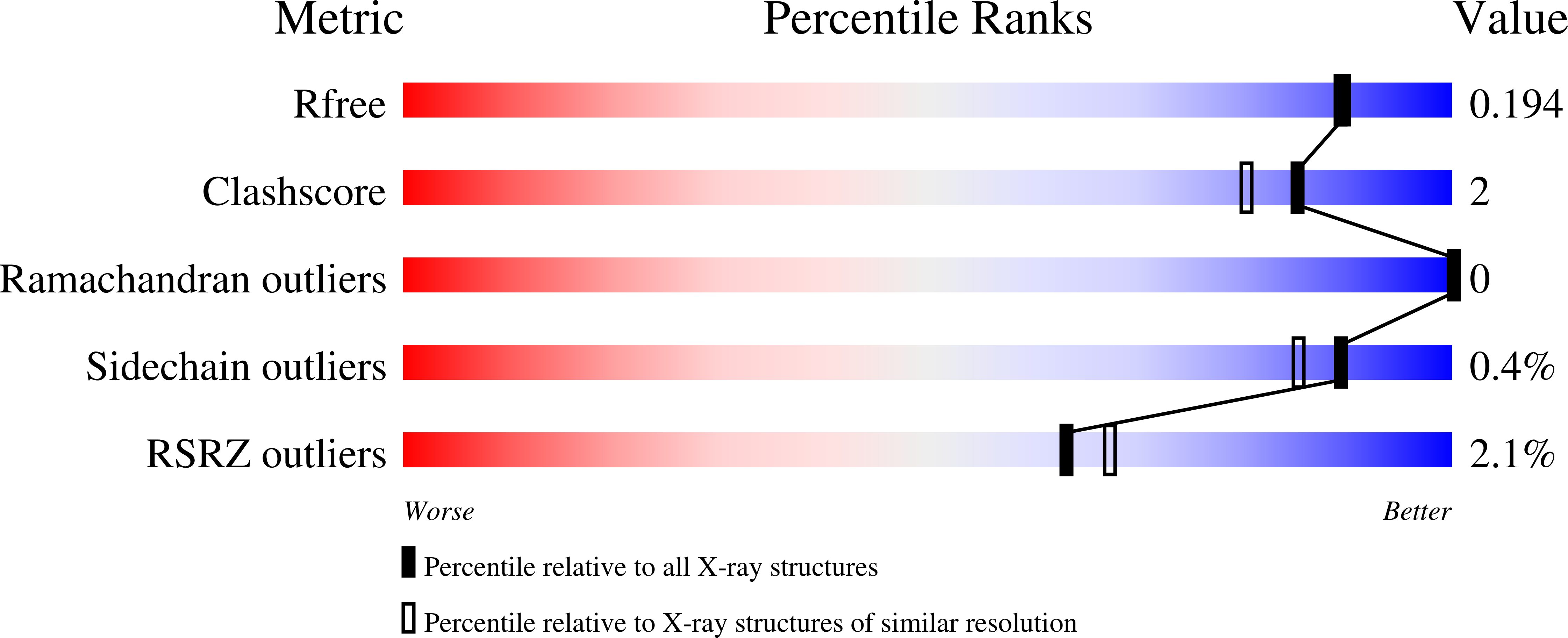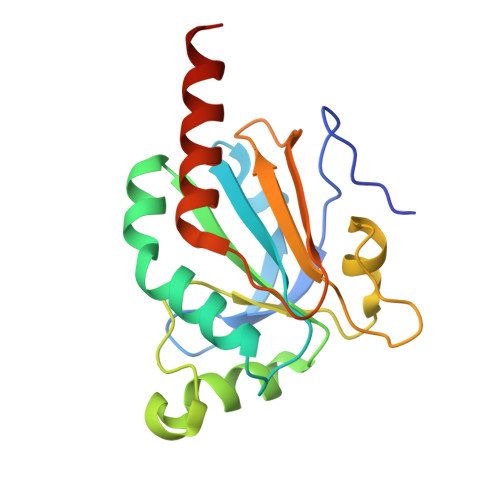Inhibited peroxidase activity of peroxiredoxin 1 by palmitic acid exacerbates nonalcoholic steatohepatitis in male mice.
Yin, W., Xu, H., Bai, Z., Wu, Y., Zhang, Y., Liu, R., Wang, Z., Zhang, B., Shen, J., Zhang, H., Chen, X., Ma, D., Shi, X., Yan, L., Zhang, C., Jiang, H., Chen, K., Guo, D., Niu, W., Yin, H., Zhang, W.J., Luo, C., Xie, X.(2025) Nat Commun 16: 598-598
- PubMed: 39799115
- DOI: https://doi.org/10.1038/s41467-025-55939-2
- Primary Citation of Related Structures:
9B7A - PubMed Abstract:
Reactive oxygen species exacerbate nonalcoholic steatohepatitis (NASH) by oxidizing macromolecules; yet how they promote NASH remains poorly understood. Here, we show that peroxidase activity of global hepatic peroxiredoxin (PRDX) is significantly decreased in NASH, and palmitic acid (PA) binds to PRDX1 and inhibits its peroxidase activity. Using three genetic models, we demonstrate that hepatic PRDX1 protects against NASH in male mice. Mechanistically, PRDX1 suppresses STAT signaling and protects mitochondrial function by scavenging hydrogen peroxide, and mitigating the oxidation of protein tyrosine phosphatases and lipid peroxidation. We further identify rosmarinic acid (RA) as a potent agonist of PRDX1. As revealed by the complex crystal structure, RA binds to PRDX1 and stabilizes its peroxidatic cysteine. RA alleviates NASH through specifically activating PRDX1's peroxidase activity. Thus, beyond revealing the molecular mechanism underlying PA promoting oxidative stress and NASH, our study suggests that boosting PRDX1's peroxidase activity is a promising intervention for treating NASH.
Organizational Affiliation:
NHC Key Laboratory of Hormones and Development, Tianjin Key Laboratory of Metabolic Diseases, The province and ministry co-sponsored collaborative innovation center for medical epigenetics, Chu Hsien-I Memorial Hospital & Tianjin Institute of Endocrinology, Tianjin Medical University, Tianjin, 300134, China.















